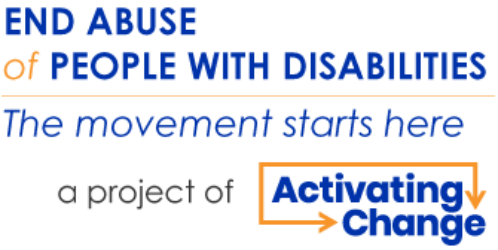Remote advocacy can be very effective and may even offer more connection to clients than less frequent in-person services. After discussing with clients what forms of communication are safe for them, providers can reach out and check in with clients by text, email, phone, video chats, and many other options. All of these communication methods allow survivor/advocates to engage in the same forms of services/advocacy as in-person — it just looks a little different. Clients, during this time, may benefit from more frequent check-ins (via text or IM if that’s safe and comfortable for the client). See https://www.techsafety.org/ for some ideas of safer tech strategies and solutions.
Safety Net’s Digital Services Toolkit dives into the various ways that services can be provided remotely, as well as best practices for doing so. If you have more questions after reviewing that, please contact safetynet@nnedv.org
Many programs are hosting virtual events, such as Take Back the Night events. Many are also pushing out information via social media. When creating and hosting online events, consider accessibility for people with disabilities and Deaf people. The Vera Institute of Justice has created tip sheet for hosting virtual events: https://www.endabusepwd.org/publications/accessibility-tip-sheet-for-virtual-meetings-and-events/. Vera has also created a tip sheet for using accessible social media: https://www.endabusepwd.org/resource/tips-for-using-accessible-social-media/.
Because of shelter in place orders, your strategies for reaching victims are more limited. Here are a couple ideas – dropping off information you want victims to know at grocery stores, pharmacies, and health clinics may be a viable option. Mailing materials about victim services is also pretty effective now. Utilizing social media and emails in areas where people have access to cell and internet service would work as well. In places where you aren’t ordered to shelter in place, you can go to those locations where victims shop for groceries, get gas, and pick up prescriptions to work with survivors may be the best option. Make sure you have not been around any one who you believe has COVID-19 and keep the 6 foot distance recommended. Texting is also an option because it doesn’t require as strong a cell signal as phone calls.
The National Network to End Domestic Violence has shared a resource developed by Joshua A. Barocas, MD et al., that provides recommendations for responding to COVID-19 in domestic violence shelters: https://nnedv.org/resources-library/recommendations-covid-19-dv-shelters/
Many jurisdictions have victims’ rights that require notice to victims prior to proceedings involving release and/or afford rights to protection. In these situations sending a letter or motion to courts indicating that their releases still need to comply can be useful. A sample letter is here: https://law.lclark.edu/live/news/43063-covid-19-resources-for-legal-services-and-victims .
Safety Net is developing on more specific guidance on virtual groups, however the general Best Practices for Digital Services content, as well as the Video Best Practices guide are helpful starters. For more specifics, email safetynet@nnedv.org.
Hosting virtual support groups is possible and may actually allow more people to participate than in-person groups. There is a balance between using platforms that may be deemed safer for survivors (see https://www.techsafety.org/ for recommendations) and those that are accessible (both in terms of ease of use, readily available to survivors, and have ADA-types of access). Screened-in groups are more essential for online groups (vs. drop in) to better ensure that survivors are appropriate for the group (and to weed out those who may be abusers or those who may benefit from other services). Online groups can operate very much like in-person groups. Creating group guidelines may be more essential, since many people may not be aware of some “protocols” of engaging online — so some guidelines may include basic online courtesy, as well as things like confidentiality, and I statements, etc.
Many communities have created Mutual Aid Networks that may be able to provide financial support to clients.
Some federal grantors have extended end dates for grants. Check with your funder to see if they are able to provide extensions.
The Resource Sharing Project has pulled together some sample policies that address working remotely, administrative leave, and the Families First Coronavirus Response Act. These policies can be found at http://www.resourcesharingproject.org/covid-19-sample-policies.
This policy paper includes arguments for suspending statutes of limitations, as well as citations to courts or states that have made changes to statutes of limitations: https://law.lclark.edu/live/news/43063-covid-19-resources-for-legal-services-and-victims
